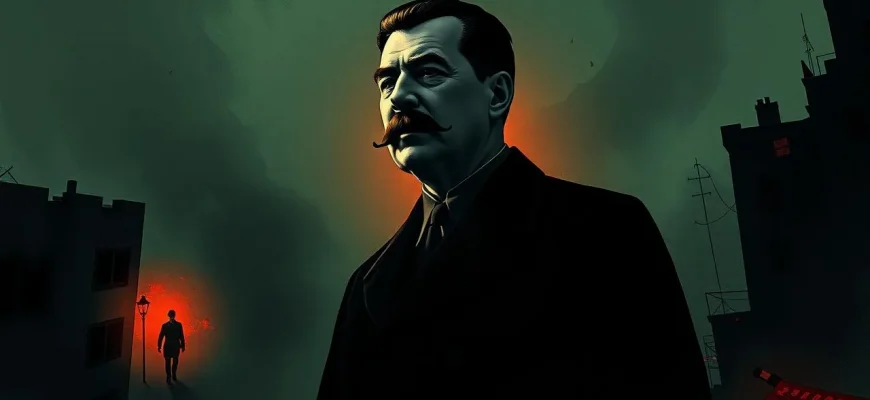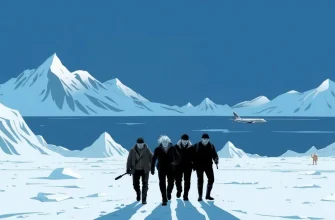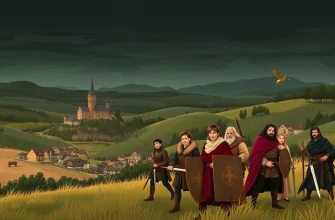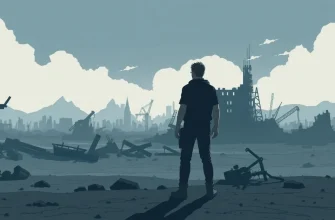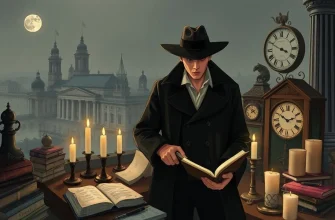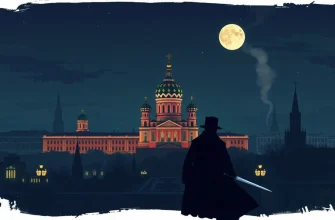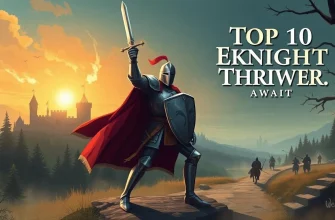The era of Joseph Stalin, marked by political repression, purges, and a pervasive atmosphere of fear, has inspired numerous films that delve into the dark corners of Soviet history. These thrillers not only provide a window into the past but also offer gripping narratives that explore the human psyche under extreme pressure. Here's a curated list of 10 films that capture the essence of Stalin's time, each with its unique take on the era's paranoia, betrayal, and survival.

The Confession (1970)
Description: Based on the true story of Artur London, a high-ranking Communist official falsely accused of treason during the Slánský trial, this film provides a chilling look at the mechanisms of Stalinist show trials.
Fact: The film was directed by Costa-Gavras, who is known for his politically charged films. It was banned in Czechoslovakia until the fall of the Communist regime.
 Watch Now
Watch Now 
Burnt by the Sun (1994)
Description: This film captures the last days of the Soviet Union's pre-war idyll, where a family's peaceful life is shattered by the arrival of an NKVD officer, revealing the dark underbelly of Stalin's regime.
Fact: Nikita Mikhalkov, who directed and starred in the film, won the Best Foreign Language Film Oscar for this movie. It was also the first Russian film to win this award since the dissolution of the Soviet Union.
 Watch Now
Watch Now 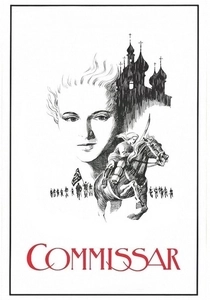
The Commissar (1967)
Description: Although set during the Russian Civil War, this film's themes of political oppression and the personal toll of war resonate with the Stalinist era, making it a poignant addition to this list.
Fact: The film was banned in the Soviet Union for nearly 20 years due to its critical portrayal of the Red Army and was only released after the fall of the Soviet Union.
 Watch Now
Watch Now 
The Ascent (1977)
Description: Set during World War II, this film captures the essence of survival and betrayal under the oppressive Soviet regime, reflecting the moral dilemmas faced by individuals during Stalin's purges.
Fact: Larisa Shepitko, the director, tragically died in a car accident before the film was released, and it was completed by her husband, Elem Klimov.
 30 Days Free
30 Days Free 
The Inner Circle (1991)
Description: Set during the height of Stalin's power, this film follows a simple projectionist who becomes part of Stalin's inner circle, witnessing the dictator's paranoia and the terror it inflicts on the nation.
Fact: The film was directed by Andrei Konchalovsky, who was once a prominent figure in Soviet cinema before emigrating to the West. The movie was shot in Italy, standing in for Moscow.
 30 Days Free
30 Days Free 
The Chekist (1992)
Description: A chilling portrayal of the Cheka's (the Soviet secret police) operations during the Red Terror, reflecting the brutal efficiency of Stalin's purges.
Fact: The film was shot in black and white to evoke the era's grim atmosphere. It was also one of the first films to openly depict the horrors of the Cheka's activities.
 30 Days Free
30 Days Free 
The House of Fools (2002)
Description: While not directly about Stalin's time, this film set in a mental institution during the Second Chechen War captures the absurdity and tragedy of life under authoritarian regimes, echoing the themes of Stalin's era.
Fact: The film was inspired by real events and features a cameo by the rock band Aquarium, whose music is central to the plot.
 30 Days Free
30 Days Free 
The Execution of Stepan Razin (1969)
Description: Although set in the 17th century, the film's themes of rebellion against tyranny and the harsh response from the state mirror the experiences of many during Stalin's rule.
Fact: The film was directed by Alexander Ivanov, who was known for his historical epics, and it was one of the few Soviet films to explore the theme of rebellion against authority.
 30 Days Free
30 Days Free 
The Mirror (1975)
Description: While not a thriller in the traditional sense, Tarkovsky's masterpiece delves into the personal and collective memory of the Stalin era, reflecting on the impact of those times on individuals.
Fact: The film is highly autobiographical, with Tarkovsky using his own childhood memories and his mother's letters to shape the narrative.
 30 Days Free
30 Days Free 
The Fall of Berlin (1950)
Description: This Soviet epic, while glorifying the Soviet victory in WWII, subtly hints at the darker aspects of Stalin's leadership, including the purges and the cult of personality.
Fact: The film was one of the first to portray Stalin as a heroic figure, setting a precedent for his depiction in Soviet cinema.
 30 Days Free
30 Days Free 
